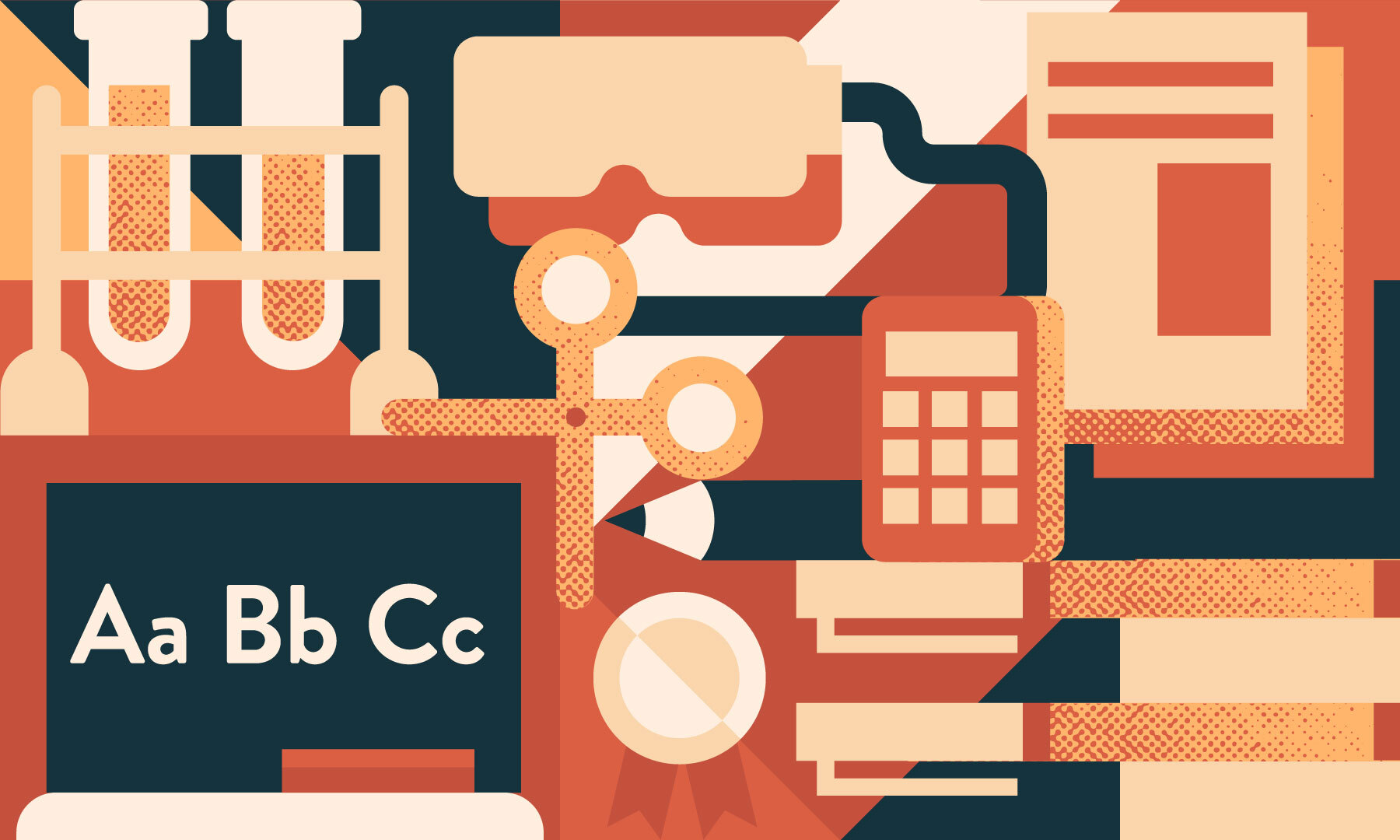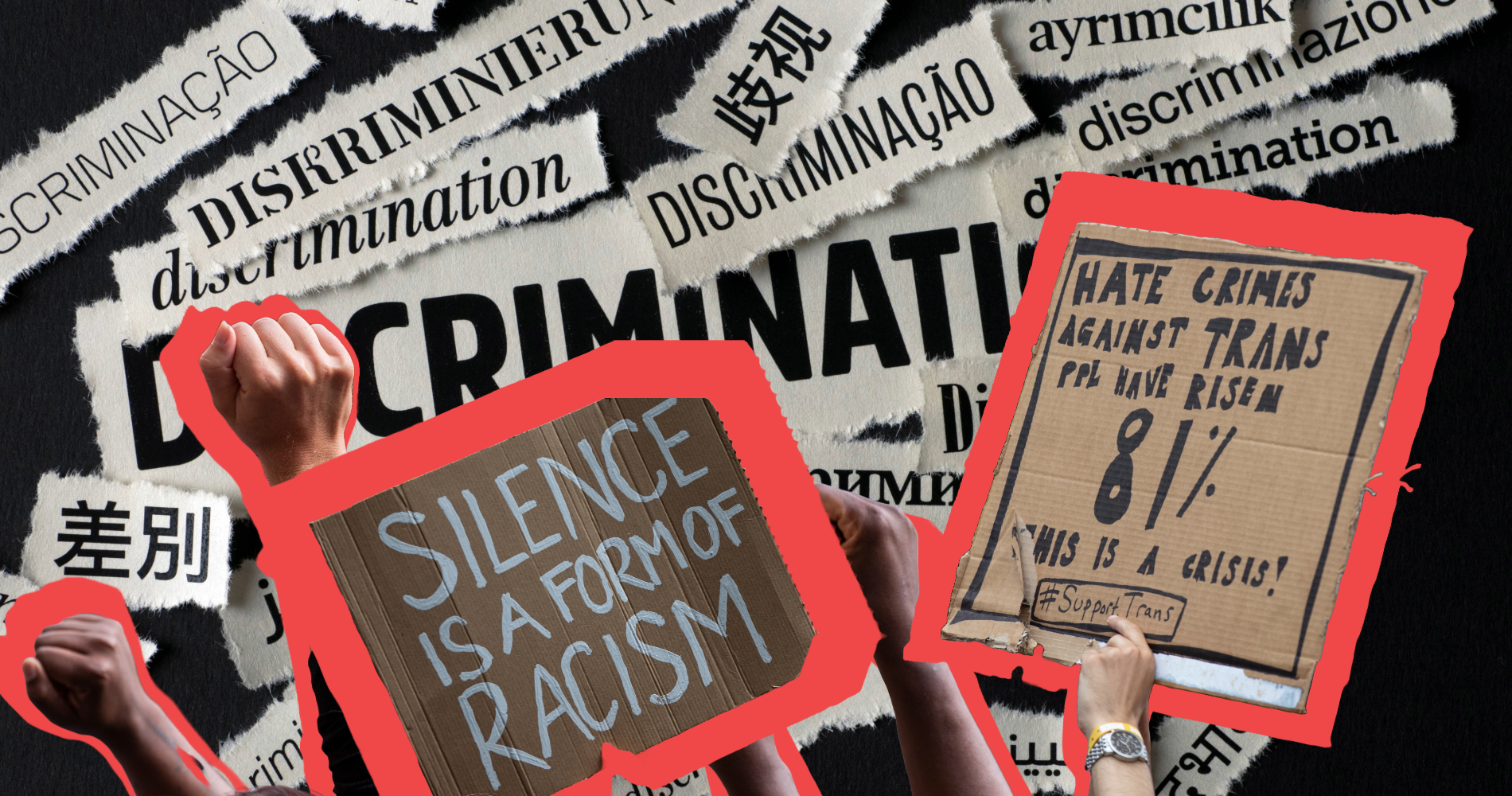Our content is fiercely open source and we never paywall our website. The support of our community makes this possible.
Make a donation of $35 or more and receive The Monitor magazine for one full year and a donation receipt for the full amount of your gift.
For decades, the right-wing neoliberal movement has oversimplified solutions to problems like the housing crisis, wage inequality, and food insecurity by championing, and moralizing the concept of choice.
In the fairy tale we’re sold, good people make the “right choices”—to own homes, to be healthy, to have job security. Anyone without access to those things simply made the wrong choices. It has been a successful message for those who righteously believe they have simply made the “right choices” in life.
Right-wing neoliberal movements have a simple equation to market their anti-public service ideology to the general public.
CHOICE = FREEDOM
Freedom, in the individualist sense, has seen a resurgence in societies around the world. Freedom to travel, to not vaccinate or wear a mask, to “choose” health care or education—over the past few years, these topics have been everywhere. Public education has been a frequent target of this messaging. “Parent choice” in education has been a priority for American conservatives since the era of desegregation.
The notion that choice is synonymous with freedom is both deliberate and calculated in its simplicity. However, this is an oversimplified equation. Choice does not actually equal freedom, no matter how often it is repeated. In reality, the equation is invalid—because as those who do not have choice can confirm, it is actually an inequality.
Choice may play a role in personal freedom, but it is an insignificant parameter. Choice = freedom is actually an inequality, both mathematically and socially. In fact, the equation can only achieve balance once we acknowledge that an entire parameter is missing.
Let’s propose an alternative, a different equation that can be at the forefront of public policy.
CHOICE + UNIVERSAL ACCESSIBILITY = FREEDOM
Accessibility, in this equation, holds a greater value than choice. What good is choice if you can’t access the good options?
Freedom comes when you don’t have to line up overnight to get your child into the “right” preschool. Freedom comes with not having to sacrifice your health and well-being, or working two jobs to access education for your children.
People are more free when they are not burdened with choices around which basic human right to set aside.
That means removing barriers to excellent high quality health care, public transit, public and post secondary education. It means not having to choose a “special” school, because all children have access to high quality inclusive curriculum through a well-funded public system.
That’s why accessibility, in our new equation, has a greater value than choice.
Economists and policy makers want to treat education as a commodity. They believe education should be marketed like airline seats, cheese or shoes—and that it should be subject to competition. But not everyone can afford to buy stilton cheese or Air Jordans, and not every family can afford the cost of private education. For many families, no amount of sacrifice, or saving will provide that option, and yet their children are equally deserving of a high quality, accessible education.
The simple math associated with Choice = Freedom reinforces a sense of self-righteousness. “I deserve it, I made the right choices, that is why my kids are in private schools.”
The same criticism extends beyond education, too, and into things like prioritizing health. The “choices” to do things like buy organic or go to the gym are not available to everyone. They depend on a wide array of factors, from your income to how many hours a person has to dedicate to job and family.
But we live in a society that sees itself as meritocratic, so people with access to those choices are often oblivious to the fact that not everyone has the same options available to them, and choice is often a function of social and economic privilege.
The result of the proliferation of “school choice” is that some schools are now places where students are segregated along lines of ability, religion and socio-economic status. This siloing of students runs contrary to the premise of public education, and prioritizes individual preferences over collective benefits. As one parent recently stated:
“Public schools are one of the only places where kids learn that not everyone shares their personal experiences, and that there are kids who are both better off and worse off than they are, kids with different belief systems or family structures. There is value to this experience for all of society, and I think government’s job should be to make funding choices that support the greater social good over the preferences of certain individuals.”
Where choice is prioritized, public schools lose their status as places where children from all walks of life can learn and grow across socioeconomic, cultural and religious differences. Instead, schools become places of homogeneity. They stop being a place to overcome social differences, but rather replicate and reinforce social inequities.
That’s the effect of “school choice,” of directing increased resources to private schools. And unfortunately, all of this “choice” is happening using public funds.
Why should any child have to compete for access to a high quality, barrier-free education? Knowledge is not a finite resource—it’s infinite and, as a basic human right, must be accessible to all children.
Diverting access to resources toward the private sector—and, consequently, diluting the public system—is not actually creating the competition that “school choice” advocates claim. In fact publicly funding private schools tips the scales in favour of the already privileged.
Providing individuals with public funding to facilitate the choice to leave the public system and attend private schools is often referred to as a “voucher system,” and it was all the rage in the United States in the first decades of the 21st century. Now, the effects of vouchers are well documented in the U.S., and even libertarians and neoliberals are recognizing the failure of vouchers to meet their original intention, as one libertarian (and former voucher supporter) wrote succinctly:
The hope of school choice was that the worst-off kids could be given the same opportunities as those born with silver spoons in their mouths. But if what parents are most interested in is keeping their children away from those kids (at least in large numbers), that hope cannot be fulfilled. Improving the quality of instruction can make everyone better off; peer group, on the other hand, is a zero-sum game, where every child who improves their peer group must be counterbalanced by one who is pushed out.
It is imperative that we do not repeat America’s mistakes around “educational choice,” and not fall for any kind of voucher system that allows public dollars to leave the public system.
Providing all students equitable access to high quality public education, and to high-quality public services more broadly, is entirely possible. Countries like Finland achieve high quality public education that includes teaching several languages as base curriculum. Germany, Finland and Austria provide free post-secondary education to any applicant, irrespective of country of origin.
The idea that choice = freedom has been an easy, simple and appealing slogan for neoliberals across party lines. For a time, it went almost entirely unopposed, even accepted and reiterated (albeit with perhaps less bloodthirsty vehemence) by progressives. It pits individuals against one another and absolves governments and systems of their role in promoting equity.
It’s time for progressives to recognize the flaw in the idea that choice equals freedom. It’s time to take a red pen to this equation and correct it, so that “accessibility” can be reintroduced into the equation, leveling the playing field for children in every community.
We can envision a public system where accessibility for those in the margins—those with disabilities, racialized children, vulnerable children, children living in poverty—isn’t a “choice,” but an inalienable right. When we center the needs of all kids, we will create a truly universal, equitable and accessible public education system where all children can flourish. Not because they or their family made the “right” choices – but because they have a right to the very best we can provide.
Our children – all our children – deserve nothing less.
An earlier version of this article appeared as a backgrounder from the Institute for Public Education (IPE). For more about the IPE, please visit https://instituteforpubliceduc…


